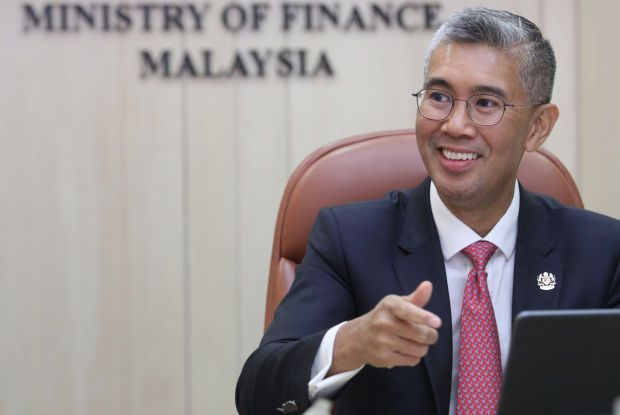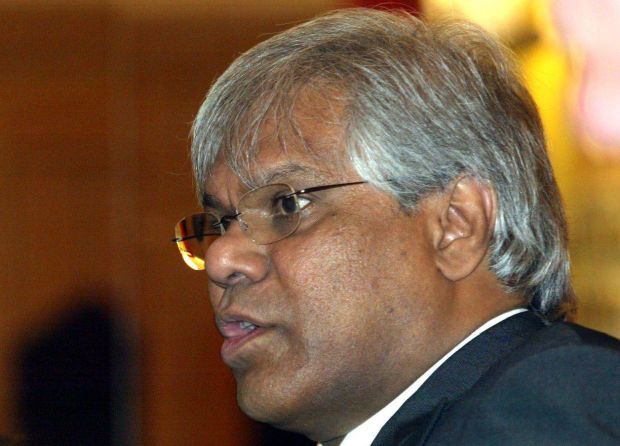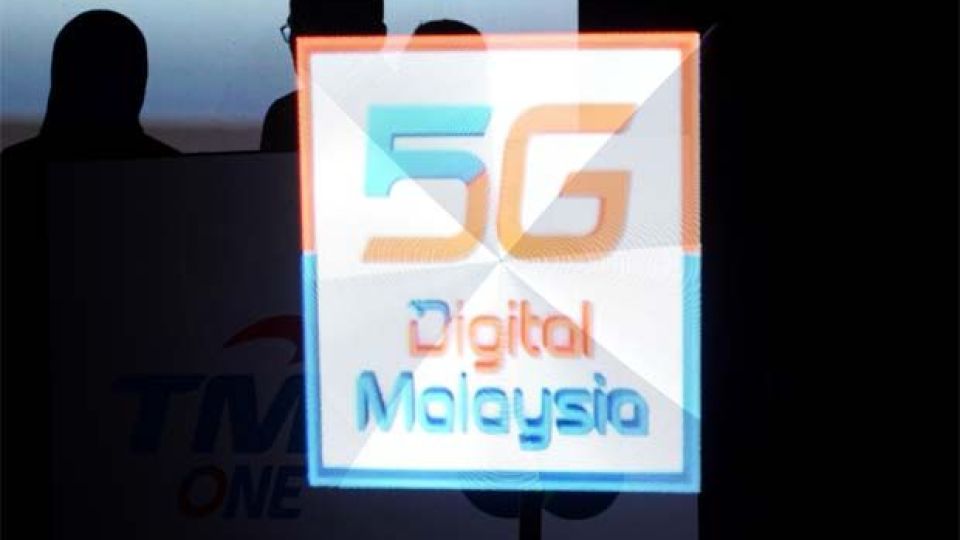March 9, 2022
PETALING JAYA – The government is likely to green-light the implementation of the 5G dual wholesale network (DWN) model but the mobile network operators (MNOs) would be first offered the option to acquire direct stakes in 5G network by Digital Nasional Bhd (DNB).
Ahead of the Cabinet’s final decision on Friday, sources told StarBiz that decision makers within the government are “leaning more” towards the DWN model as compared to the single wholesale network model where MNOs gain 5G access from a single provider for a wholesale price.
That single provider is DNB, which is a special-purpose vehicle (SPV) wholly-owned by the Finance Ministry.
Once the DWN model takes off, there will be another 5G wholesale provider, via a consortium privately-owned by MNOs. The second provider will build its own infrastructure without the government’s involvement.
The source said to avoid the DWN scenario, MNOs such as Maxis, Celcom, Digi and U Mobile will be offered equal stakes in DNB instead of following on with the option to establish a second wholesale network.

“Finance Minister Tengku Datuk Seri Zafrul Abdul Aziz (pic) will be presenting that option on Thursday to Prime Minister Datuk Seri Ismail Sabri Yaakob and Communications and Multimedia Minister Tan Sri Annuar Musa. “The MNOs will get an equal share each in DNB, while the Finance Ministry will continue to hold a certain percentage of equity interest in the SPV,” a person with information on the matter said.
“Finance Minister Tengku Datuk Seri Zafrul Abdul Aziz (pic) will be presenting that option on Thursday to Prime Minister Datuk Seri Ismail Sabri Yaakob and Communications and Multimedia Minister Tan Sri Annuar Musa.
“The MNOs will get an equal share each in DNB, while the Finance Ministry will continue to hold a certain percentage of equity interest in the SPV,” a person with information on the matter said.
The government had previously been open to reducing its stake in DNB over a period of three years after 5G is rolled out, hence allowing MNOs to become shareholders of DNB.
DNB chief executive officer Ralph Marshall, who acknowledged that a 100% government-owned entity may be less efficient in the long term, previously said the plan to reduce the government’s stake in DNB is known to senior officials and management of MNOs.
“It is not practical to open the ownership now as DNB has adopted a cost recovery and supply-led approach to accelerate the implementation of 5G network at lower cost, with specific focus on narrowing the urban-rural digital divide as intended by the government,” Ralph said on Feb 12 in a reply to Bangi MP Ong Kian Ming.

DNB chief executive officer Ralph Marshall, who acknowledged that a 100% government-owned entity may be less efficient in the long term, previously said the plan to reduce the government’s stake in DNB is known to senior officials and management of MNOs.
DNB has previously asserted that the consortium-based second 5G network is not new and was mooted under the Pakatan Harapan government. However, MNOs were unable to agree on the operating model and strategic objectives.
“How will it be different this time? Differences in opinion and commercial interests among the MNOs under the DWN model may delay the deployment of 5G infrastructure,” according to an industry observer.
It was also previously contended that it would be costlier if MNOs establish their own wholesale network, and this would translate into higher pricing for the end-users. Duplication of 5G infrastructure such as the network towers is also likely to occur. It is believed that the second 5G network would cost an extra RM7bil.
DNB has said that it will charge less than 20 sen per gigabyte (GB) for 5G service. The company is able to lower its pricing as it works on a cost-recovery model and is not profit motivated.
The government’s decision to allow the DWN model, however, could create various legal and financial implications to the country.
Thus far, DNB said that more than 100 contracts have already been signed and a revocation of such contracts would lead to a substantial amount of claims and compensation.
The bulk of the payment will be for the phase one execution contract with Ericsson.
Swedish telecommunications giant Ericsson had been appointed by the government as the sole company to design and build Malaysia’s 5G infrastructure.
“In addition, total financing from local banks and Ericsson’s deferred payments amounting to RM1.2bil for phase one implementation costs will need to be settled.
“(DNB will incur) termination costs of lease agreements for the lease of DNB office buildings and network infrastructure (site location, fibre and utilities),” DNB told StarBizWeek last month.
Currently, DNB is running a pilot trial for 5G, providing MNOs with free access to all of its 5G live sites until March 31.
However, to date, only YTL Communications’ YES is participating in the trial and offers 5G access to its users.
Based on this pilot trial, DNB said download speeds are averaging 646.25 Mbps compared to the 4G average of 30.40 Mbps.
Average download speeds are updated weekly on the DNB website.
The 5G network has also shown a three-fold increase in registered users over a three-week period of Jan 16 to Feb 5.
DNB chief technology officer Ken Tan said the 5G network has performed beyond expectations.
DNB aims to ramp up 5G coverage this year and is expected to cover 37.9% of populated areas by the end of 2022.
This includes parts of Johor, Penang, Sabah, Sarawak, Selangor, Negri Sembilan, Melaka and Perak.
“We would like to thank the various federal, state and local authorities and government agencies that are working with DNB to expedite the 5G rollout.
“They are helping us stay on track for our 5G coverage target of 37.9% of populated areas by the end of 2022,” Tan said.

